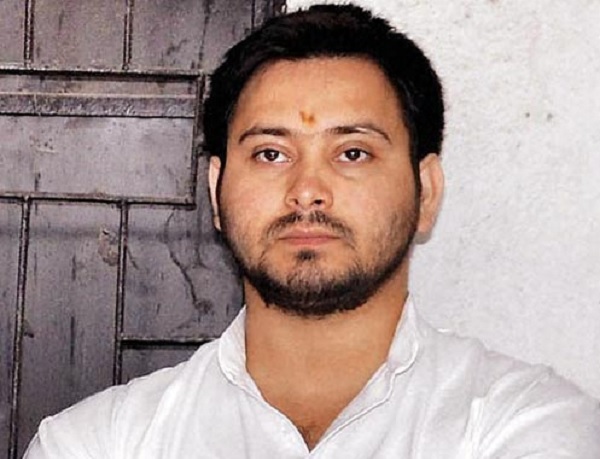
Bihar Polls: Secret of Upper Castes’ Softness Towards Tejashwi
Nitish and his deputy and BJP leader Sushil Kumar Modi are leaving no stone unturned to remind the people of the 15 years of Lalu Prasad-Rabri Devi government, but it is not cutting much ice
Soroor Ahmed | PATNA
Few know that Rashtriya Janata Dal president Lalu Prasad Yadav had a very good personal relationship with the Bhumihars in his home district of Gopalganj before he became the chief minister of Bihar on March 10, 1990.
During those years, the equation between Brahmins and Bhumihars in that part of the state was not good. Lalu had in the initial months even posted and promoted some Bhumihars on important posts.
However, the imposition of the Mandal Commission Report by the then Prime Minister Vishwanath Pratap Singh in August 1990 changed the whole scenario in the country, especially in North India.
In Bihar, many upper-caste leaders, mostly Bhumihars, were in the forefront of the anti-Mandal movement. The backward-forward tussle became bloody in several places and the relationship got strained.
Thirty years later, history is now repeating itself, but in a somewhat different way. When journalists from Delhi, Patna or other metros are fanning out to the interiors of Bihar, to their utter surprise, they are observing that many upper-caste men are extremely critical of chief minister Nitish Kumar. They do not want to see his return even at the cost of RJD leader Tejashwi Prasad Yadav.
Nitish and his deputy and BJP leader Sushil Kumar Modi are leaving no stone unturned to remind the people of the 15 years of Lalu Prasad-Rabri Devi government, but it is not cutting much ice.
Instead, some of them have softened their stand towards the RJD supremo and his young son.
In contrast, there is growing resentment against Prime Minister Narendra Modi, but it is not as pronounced as against Nitish.
In several villages in Bhojpur, Patna, Vaishali and Siwan districts, the story may be the same elsewhere, too — upper-caste voters are prepared to vote for anyone but Nitish.
Apart from the total collapse of the state government, the alleged Kurmisation of the administrative machinery and several big businesses are the factors responsible for this strong anti-Nitish feeling. The argument is that while the Mandal Commission Report recommended 27 per cent reservation for about 45-50% backward castes, in post-2005 Bihar, two per cent Kurmis are disproportionately occupying a large percentage of jobs, government contracts, businesses like big private hospitals, private educational institutions and those related to construction and transportation sectors.
There is another thinking which has the blessings of a section of BJP leaders as well. They are of the view to let young and inexperienced Tejashwi win this time. This would ultimately lead to the end of Nitish, who has become too big for his boots–but has now lost his utility.
If Tejashwi comes to power with the support of upper-caste men, the latter may form some clout within the system. And if he does not come under their control next time — or even in the middle of the tenure — he may be dumped. In such a situation, it would pave the way for the BJP to bounce back to power with its own leader.
There is another upper-caste lobby, especially led by Bhumihars, which wants the revival of the Congress, but since this does not appear to be possible in the coming days, they may opt for the BJP in the near future.
But all these are just possibilities and if Tejashwi comes out much smarter, then the whole story may not go this way. In that scenario, the end of Nitish may amount to weakening of the BJP, too, as the latter is falling under the weight of its own contradictions.
While the BJP thinks that its Hindutva ideology is getting stronger, there is another aspect of this whole development. The upper castes who play power politics have their own agenda. They dump and adopt any party/ideology to remain in power. Since Bhumihars are numerically much stronger among upper castes in Bihar, their role appears more visible. In Uttar Pradesh (or other states), there may be Rajputs, Brahmins, Jats, Patels etc. who play this role more emphatically.
